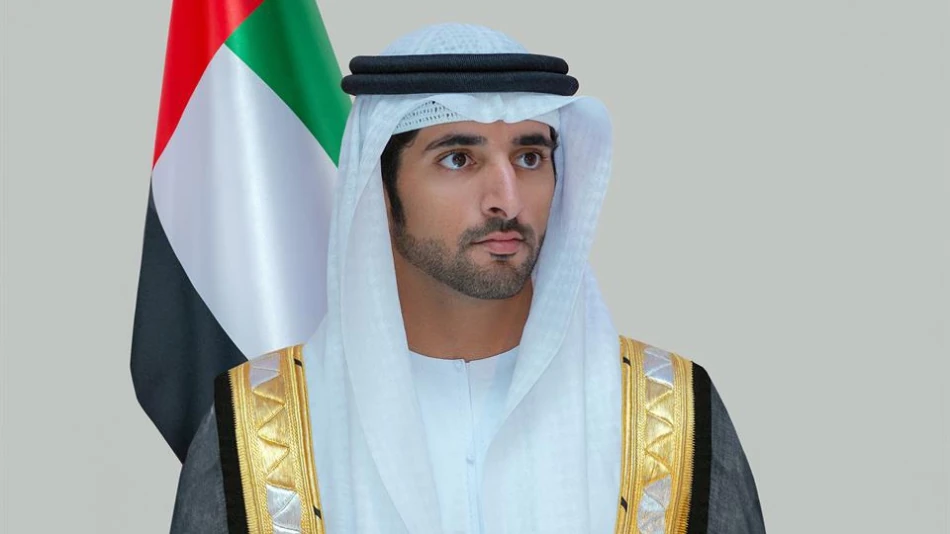
Dubai's Crown Prince Launches Groundbreaking AI Transparency Framework for Enhanced Human-Machine Collaboration
Dubai Launches World's First AI-Human Collaboration Transparency Rating System
Dubai has unveiled the world's first classification system designed to enhance transparency around human-AI collaboration in research, publishing, and content creation. The initiative, announced by Crown Prince Sheikh Hamdan bin Mohammed bin Rashid Al Maktoum, positions Dubai as a pioneer in responsible AI governance while addressing growing global concerns about artificial intelligence's role in knowledge production.
A Strategic Move in the Global AI Governance Race
The Dubai Future Foundation-developed classification system represents more than just a transparency tool—it's a calculated bid for regulatory leadership in the rapidly evolving AI landscape. As governments worldwide grapple with how to regulate artificial intelligence without stifling innovation, Dubai is positioning itself as the standard-setter for responsible AI disclosure.
This move comes at a critical juncture when academic institutions, publishers, and content creators are struggling with questions about AI attribution and transparency. Major academic journals have begun requiring disclosure of AI assistance, while social media platforms face pressure to label AI-generated content.
Market Implications and Competitive Positioning
Dubai's Innovation Economy Strategy
The classification system aligns with Dubai's broader strategy to become a global hub for emerging technologies. By establishing international standards for AI transparency, Dubai could attract research institutions, tech companies, and content creators seeking credible frameworks for AI collaboration disclosure.
This initiative builds on Dubai's existing AI strategy, which aims to make the emirate the world's smartest city by 2025. The transparency rating system could become a competitive advantage, particularly as international businesses increasingly prioritize ethical AI practices in their operations.
Global Regulatory Landscape
Dubai's proactive approach contrasts sharply with reactive regulatory frameworks emerging elsewhere. While the European Union focuses on AI risk assessment through its AI Act, and the United States emphasizes safety standards, Dubai is targeting transparency and collaboration—potentially more palatable to businesses and researchers.
Singapore has pursued similar innovation-friendly AI governance, but Dubai's focus on human-AI collaboration transparency represents a more specific niche that could establish international precedent.
Practical Applications and Industry Impact
Academic and Research Sectors
The classification system addresses a pressing need in academic publishing, where journals increasingly require authors to disclose AI assistance. Dubai's standardized approach could streamline this process globally, potentially making it the go-to framework for research institutions worldwide.
For researchers, this system offers clarity in an area where guidelines have been inconsistent. It could reduce the compliance burden while ensuring ethical standards are maintained across different disciplines and institutions.
Content Creation and Media Industries
Content creators and media organizations face growing pressure to disclose AI involvement in their work. Dubai's classification system could provide the standardized approach these industries need, potentially influencing how platforms like YouTube, LinkedIn, and publishing houses handle AI disclosure requirements.
Long-term Strategic Implications
By launching this initiative, Dubai is essentially betting that transparency, rather than restriction, will define successful AI governance. This approach could attract international organizations seeking clear, business-friendly AI standards while maintaining ethical credibility.
The system's success will likely depend on adoption rates among global institutions and its ability to balance transparency with practical usability. If widely adopted, it could establish Dubai as a key player in AI governance, complementing its existing strengths in fintech and smart city technologies.
The initiative also signals Dubai's understanding that future economic competitiveness will depend not just on adopting AI, but on being seen as a responsible leader in its implementation—a positioning that could prove valuable as AI governance becomes increasingly important to international business and academic partnerships.
Most Viewed News

 Sara Khaled
Sara Khaled






